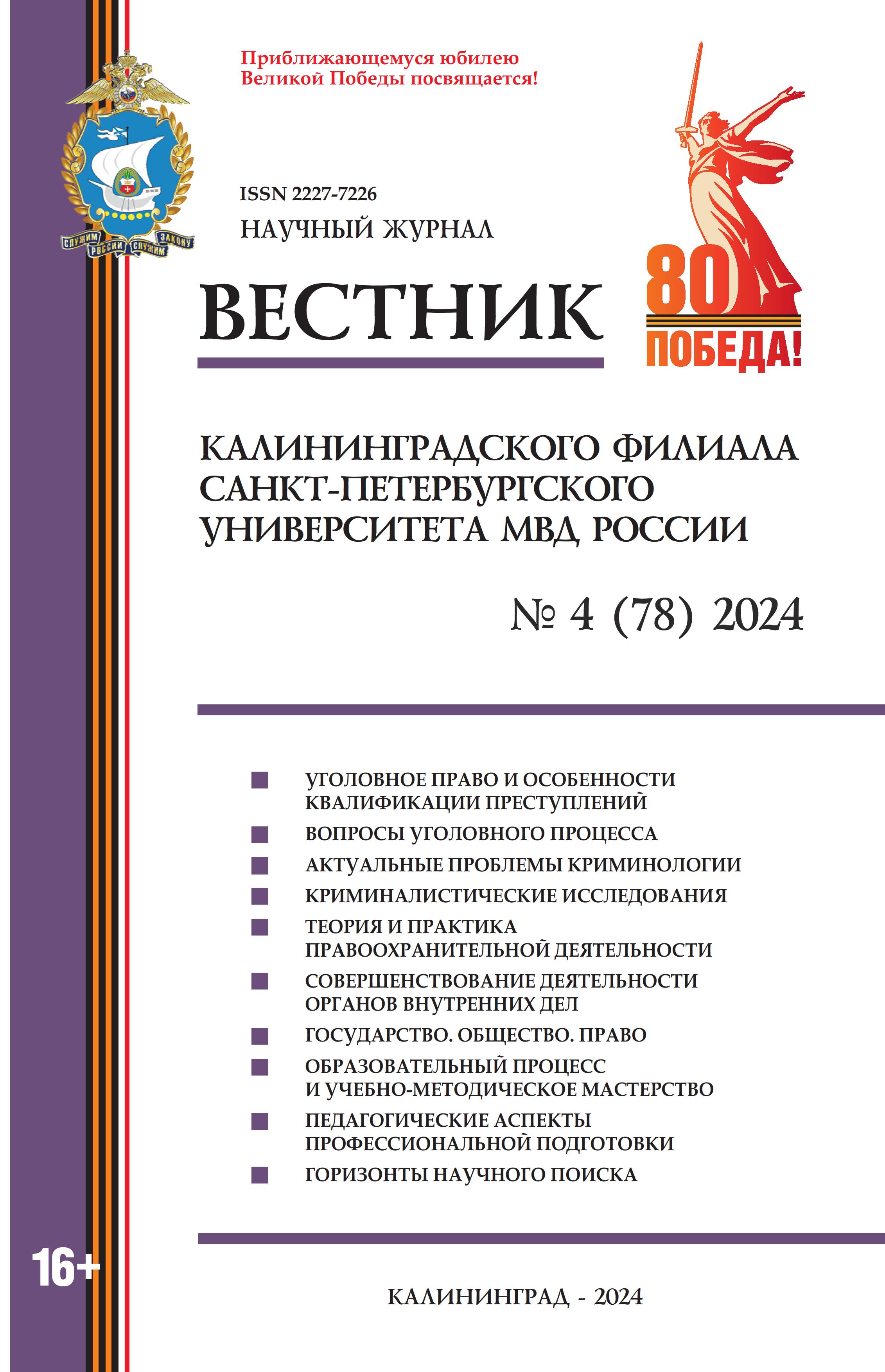from 01.01.1994 until now
Volgograd, Volgograd, Russian Federation
UDC 34
CSCSTI 10.00
Russian Classification of Professions by Education 40.00.00
Russian Library and Bibliographic Classification 6
Russian Trade and Bibliographic Classification 7
BISAC LAW LAW
Introduction. A word in legal activity is never an «empty sound». Any legal designations always represent real people, their well-being, and sometimes even their lives. Language, which acts as a fundamental instrument of human communication, has historically contributed to the development of society. The protocol language of investigative actions is the most important means of conveying objective information while maintaining emotional neutrality. Without excluding subjective assessments, it is impossible to ensure fairness and impartiality of criminal proceedings. It is noteworthy that the concept of «protocol language» (or «protocol language») is not formally enshrined, but this circumstance does not cancel its existence. And the requirements for the design of protocols (in particular, protocols of investigative actions) confirm the need for an in-depth study of this means of communication. Methods. For a comprehensive consideration of the issues studied by the author of the article, various classical dialectical and general scientific methods of cognition were used: comparative legal, analysis, synthesis, induction, deduction, system interpretation. Results. The current stage of development of society is characterized by rapid improvement of digital technologies, which causes new requirements to the structure and function of the language of investigative practice. In order for it to meet the challenges of technological progress, increased attention should be paid to issues of clarity, accuracy and objectivity of the protocol language. Systematic study and implementation of language culture standards in the criminal procedure sphere of activity of law enforcement institutions open up new opportunities for a significant increase in the level of its effectiveness. At the same time, the consolidation of such standards contributes to the formation and maintenance of a positive image of a law enforcement officer. Instilling skills in the confident use of protocol language should be an integral part of the training of legal personnel, including investigators, prosecutors and judges.
Criminal procedure, investigative action, protocol, professional speech, written speech, precision of presentation, unambiguity of text, emotional neutrality.







